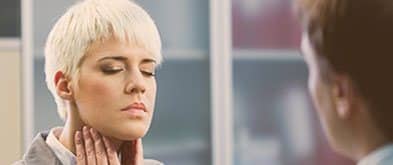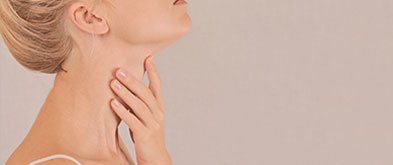Allergy Testing in Rockwall, TX
Lakeside Allergy ENT is home to the best otolaryngologists and allergy specialists in Texas. Our allergy doctors serve patients of all ages at our three convenient locations in Rockwall, TX. If you suffer from allergies, contact us today. Our board-certified otolaryngologists and allergists have years of experience performing ENT procedures, including allergy testing.
Request an appointment using the form on this page, or learn more about allergies and allergy testing below.
How are allergic reactions caused?
Allergy symptoms appear when the immune system reacts to an allergic substance entering the body. The immune system produces special antibodies that can recognize the same allergic substance (called an allergen) if it enters the body later.
When an allergen reenters the body, the immune system rapidly recognizes it, causing a series of reactions. These reactions often involve tissue destruction, blood vessel dilation, and production of inflammatory substances including histamine.
What is allergy testing?
More than 50 million people in the United States have allergies. Finding out what you are allergic to is an important first step to effective allergy treatment. Allergy testing is used to determine the cause of allergic reactions. The results of allergy tests can help your allergy specialist develop a treatment plan to manage your symptoms, such as allergy shots. Check out our allergy shot schedule here.
To get your allergies tested by our board-certified ENT and allergy specialists, contact us today.
What types of allergy tests do you offer?
During allergy testing, Lakeside Allergy ENT’s allergy specialists look for allergy-causing substances called allergens. We offer three methods of allergy testing: two skin tests and a third type of allergen testing called RAST testing.
Prick Testing
Prick testing involves a small “prick” in the skin and then the allergist places an allergen on the open skin to see if there is a reaction. The testing site is usually the forearm, upper arm, or the back. When a patient is allergic to a substance, redness, itching, and swelling will develop at the test site.
This allergy skin test involves minimal discomfort, it usually takes about an hour to complete and the results are available before you leave the office. Another advantage of prick testing is that it does not require needles and therefore it may be a good option for pediatric patients or patients who are afraid of needles.
Intradermal Skin Testing
Intradermal testing is another type of skin allergy test. During intradermal skin testing, the allergy specialist injects a small amount of allergen under the surface of the skin and then watches for a reaction at the site.
Like prick testing, this allergy test is also very quick and the results can be obtained almost immediately. The advantage of intradermal testing is that it may allow more specific determination of the level of allergy sensitivity than prick testing.
Intradermal skin tests are most useful for testing for:
- Respiratory allergies
- Penicillin allergy
- Insect bite allergies
- Food allergies
RAST Testing (Blood Test)
A RAST allergy test uses a sample of the patient’s blood to test for allergens. RAST stands for radioimmunoassay test, and its purpose is to detect specific antibodies to suspected or known allergens to help guide a diagnosis. For RAST tests, your allergy doctor carefully extracts a small amount of blood, which is then tested in a laboratory.
Advantages of RAST allergy testing are:
- It has high specificity, meaning it can detect specific allergens
- A person does not have to go off of existing medications
- Children of any age can take RAST blood tests
- Only one needle and one blood sample are needed to test for many allergens
What are the benefits of an allergy evaluation?
By determining the specific allergens that are causing your symptoms, our allergy specialists can tailor a treatment plan for you to address both the allergies as well as many allergy-related ENT problems including:
- Recurring ear infections
- Sinusitis
- Post-nasal drainage
- Persistent cough
- Hoarseness
Lakeside Allergy ENT is home to three board-certified otolaryngologists and allergy doctors who specialize in diagnosis and treatment of all ear, nose, and throat-related disorders, including allergies and allergy testing. If you or your child has any symptoms of allergies and you want to learn more about allergy testing, call our office at 972-771-5443 or get started by requesting an appointment with our expert allergists using the form on this page. You can also view our Allergy Shot Schedule here.






